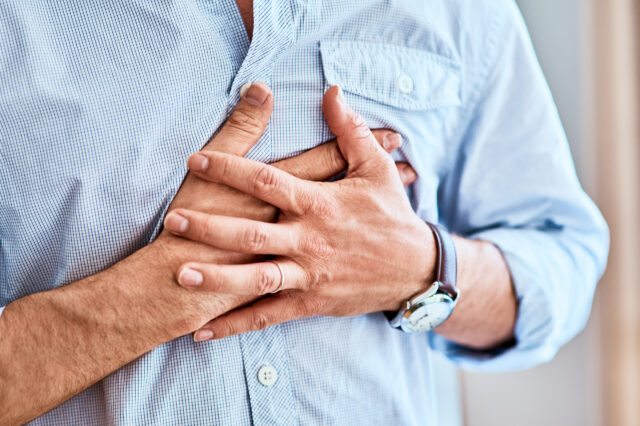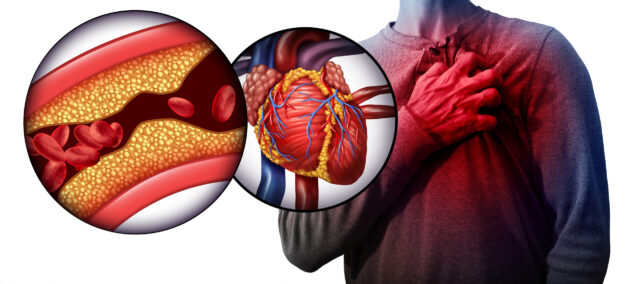Heart Attack 101 – Know the Signs and Symptoms
There’s no better time than American Heart Month to be educated and spread awareness about recognizing symptoms but also maintaining a heart healthy lifestyle.

According to the Centers for Disease Control and Prevention, heart disease is the number one cause of death in the U.S., so knowing the signs and symptoms of a heart attack is crucial. There’s no better time than American Heart Month to be educated and spread awareness about recognizing symptoms but also maintaining a heart healthy lifestyle.
Watch for warnings
A heart attack can happen because one of the blood vessels that feed the heart muscle becomes clogged by a blood clot. Time is crucial when it comes to heart attacks. The longer you wait to address symptoms, the more damage can be done to the heart. Knowing the signs can help you or others around you seek immediate medical attention. Typically, heart attach symptoms include:
- Chest pain, which can be as severe as feeling like an elephant is sitting on your chest
- Pain that travels up to your jaw and down your left arm
- Shortness of breath
Symptoms can differ
It’s important to know that not all people experience the same symptoms. Differences can occur between gender and those who are diabetic. Atypical symptoms include the following:
- Heavy sweating – especially cold sweats
- Upset stomach or indigestion
- Nausea
Women tend to experience an upset stomach, indigestion and nausea more than men. The most common symptom for both men and women is chest discomfort.
When to seek help
No matter how mild or severe the symptoms feel, always head straight to the emergency room or call 911. Do not waste any time in seeking help, as heart attacks cannot be self-treated. Even if you think it’s something else, especially when having consistent upset stomachs and indigestion, go get it checked out. Taking four baby aspirin can be helpful, so keep those handy while en route to the hospital.
Again, keep in mind that time is crucial when it comes to responding to symptoms of a heart attack.
Prevention is key
While knowing the signs and symptoms of a heart attack is important, you can reduce your risk of experiencing a heart attack by following these healthy habits:
- Eat a healthy diet
- Avoid smoking
- Maintain a healthy weight
- Monitor your blood pressure and cholesterol
UF Health Cardiology in Jacksonville includes internationally recognized physicians who are leaders in cardiac care, research and education. UF Health Jacksonville is renowned for treating patients with complex diseases and being on the forefront of advancing the science of interventional cardiology. Find a location near you and schedule an appointment at UFHealthJax.org/cardiology/locations.
